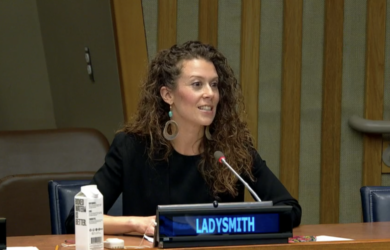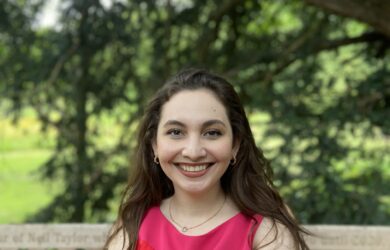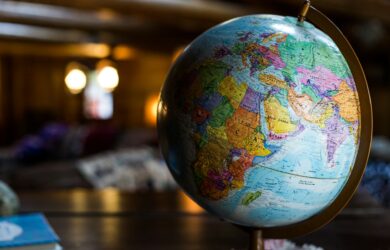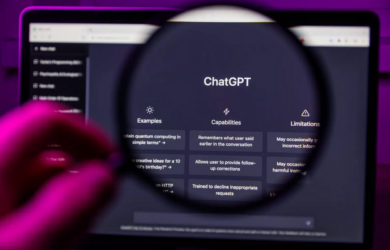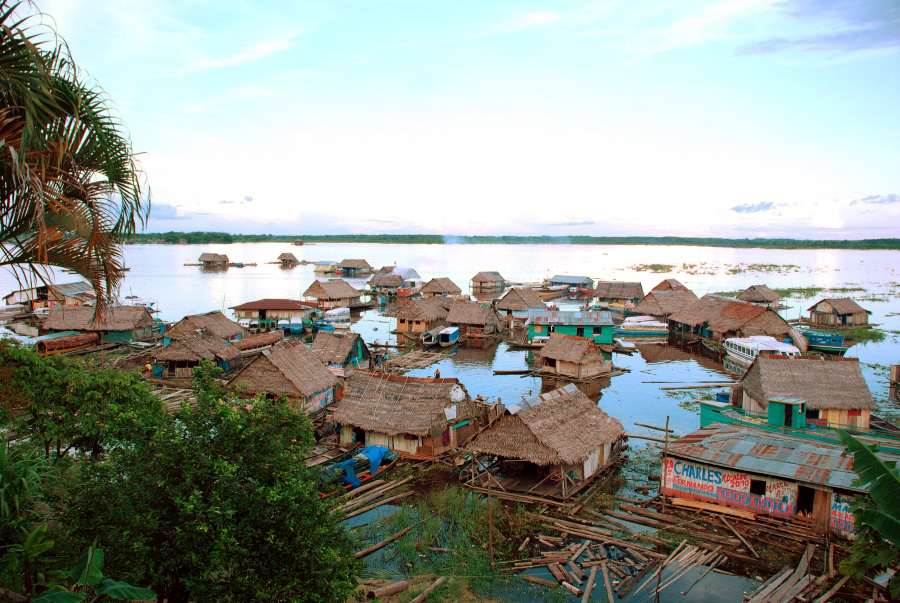
Sam Sudar creates an app to help health workers gather vital information in remote areas of Peru
This is the first project I know of to make use of subsidised data provided by Facebook and telecommunications companies to collect health information and leverage vibrant organic digital activity like Whatsapp groups to try and increase health reporting.
Sam Sudar
A Gates Cambridge Scholar has created an app which can be used by healthworkers in remote areas of the Peruvian Amazon to gather vital information and increase reporting of health problems.
Sam Sudar [2009] started working with the health research project Mamás del Río when he was living in Lima in the last half of 2014. The project, led by doctors Magaly Blas and Isaac Alva, focuses on the Peruvian Amazon and aims to help healthworkers in rural villages there monitor and get feedback on health issues across the villages and communicate with each other.
In order to do so, project workers gave community health agents in 15 rural villages smartphones. Sam built an app so they could fill out short forms and send the results back to the university researchers by text message (SMS). The information gives them more structured data than they can get through conversation alone. At the time, Sam was being mentored by Patty Garcia, who is the new Health Minister of Peru. She is now working with Mamás del Río to try and expand the project.
In February Sam went back to Peru to see how the app was working, travelling on a medical boat called the Amazon Hope with Peruvian doctors, dentists and nurses. He found out that the heath agents preferred to communicate with researchers and each other via Whatsapp so he rebuilt it for Whatsapp, making it more user friendly in the process.
The app is on the Play Store, but is not widely available to download yet.
Sam, who did an MPhil in Neuroscience at the University of Cambridge and is now doing a PhD in Computer Science at the University of Washington, says: "This is an example of a project that I think is meaningful and impactful. It is the first I know of to make use of subsidised data provided by Facebook and telecommunications companies to collect health information and leverage vibrant organic digital activity like Whatsapp groups to try and increase health reporting."
He adds: "Free Whatsapp means a lot to these communities and trying to leverage that fact to increase global health metrics is a powerful idea. Seeing how Whatsapp is being used on the ground is one of the reasons that I am, in general, not convinced by the argument so common in academia that Facebook's Free Basics-style programs are evil. They can be controversial, but I am a supporter. I've seen the communities use the free data to tell the group that someone's son had been burned in a generator explosion and request that nurses from a nearby community come help him. That kind of thing is really persuasive to me. Even in the face of criticisms that perhaps the first incarnations of Free Basics are not ideal, the fact that they permit this kind of communication is a big win."
*Picture credit of Peruvian Amazon floating village Iquitos: Sascha Grabow www.saschagrabow.com
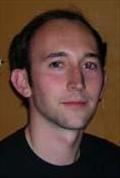
Samuel Sudar
- Alumni
- United States
- 2009 MPhil Veterinary Science
- St John's College
After growing up in a mill town in Washington State, I attended the University of Washington in Seattle. There I took a smattering of courses, from Latin to photography, and spent my first two years as a classical guitar major. I ended up graduating with degrees in English, Philosophy, and Neurobiology. After graduation, I spent last year abroad on a Bonderman Travel Fellowship. This was an amazing experience. It took me from South America, 2400 meters high at a New Year's Eve rave in the Valley of the Dead, to diving 20 meters deep in a tropical ocean with nothing but a snorkel. I was able to spend time in the metropolis of Tokyo as well as a night with Chinese monks in a Zen temple. At Cambridge I am pursuing my interest in neurobiology, studying stem cells and remyelination in an effort to repair the spinal cord after injury and disease.








